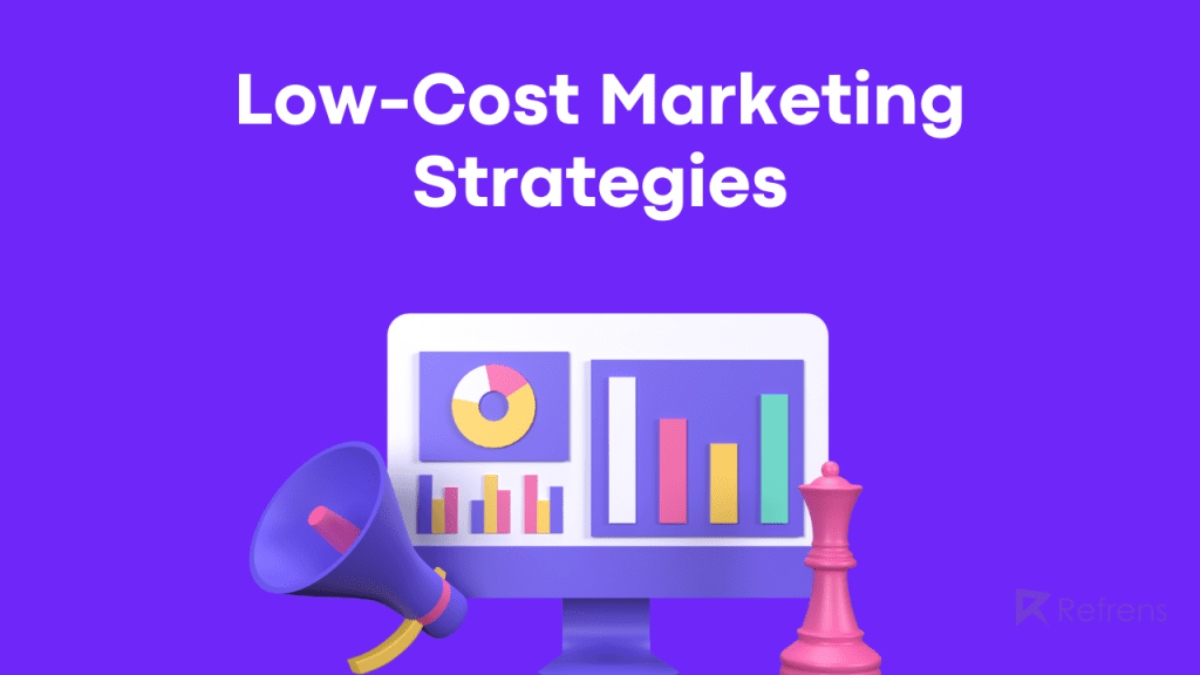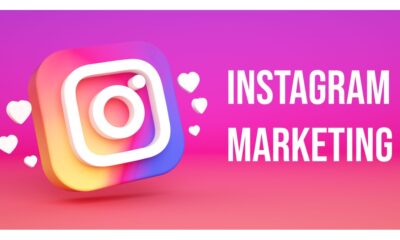Business
9 Low-cost Marketing Strategies and Ideas That Offer a Good Return on Investment for Small Businesses

Small business marketing strategies can help you find and reach potential customers, even if you don’t have much time or a tight budget. The idea is to develop low-cost marketing strategies that offer a good return on investment.
Small business owners may find it useful to outline these answers in the form of a marketing plan. This will help you plan, schedule, assess, and measure your marketing strategies. A comprehensive marketing strategy comprises marketing goals, a description of your products and services, market research, consumer information, and data on marketing methods.
9 Small Business Marketing Ideas
1. Website
Every small business should have a website that prospects can visit while looking for products and services in their area. A poorly designed website, which is not user-friendly, difficult to navigate, and lacks logical organization, can be a nightmare for small business owners.
When developing and designing the website, make sure the business information is obvious and easy to find, including your location, hours, and contact information. The website should have basic product and service information, customer testimonials, a blog, and a frequently asked questions (FAQs) page.
2. Social Media
If your customers use social media, so should you. Regardless of size or sector, small business marketing on social media is beneficial to any business at every point of the sales funnel. Social media platforms like Facebook, Twitter, LinkedIn, YouTube, and Instagram target and delight customers, generating demand, increasing revenue, and empowering customer influencers.
Social networking allows you to maintain and develop ties with existing customers. Businesses that are responsive, amusing, and interesting can promote brand advocacy, raise brand awareness, generate sales and leads, and provide customer support.
3. Business Collaborations
You can quickly expand your brand by forming strategic partnerships with larger businesses that are similar to you, especially those that share commonalities and target markets but are not direct competitors.
This allows you to leverage an existing consumer base, as well as important resources and marketing channels that have previously been established. These collaborations also generate referrals from partners.
4. Online Advertising
While online advertising on paid platforms may be more expensive than other marketing options, it may be an effective tool for small businesses looking to reach the greatest number of potential clients in the shortest amount of time.
You can, for example, use Google AdWords to target hundreds of potential customers who search for your products and services on Google each day.
Aside from Google AdWords, you may utilize Facebook ads to target a certain demographic on Facebook. This allows you to target customers based on their age, gender, preferences, and dislikes.
5. Content Marketing
Small businesses can increase visibility, brand awareness, competitive advantage, website traffic, and leads/conversions by providing excellent and relevant content. Content marketing gives small businesses an advantage over larger businesses with larger marketing budgets by presenting them as thought leaders in the minds of customers and competition.
6. Deals and Coupons
Customers prefer to save money. Giveaways, free samples, flash sales, deals, and coupons are effective small business promotion strategies for attracting new clients and giving them the impression that they are getting a fantastic deal.
Before announcing promotions, businesses must examine the type of promotion they want to run, why they’re doing it, the reason behind using sales promotions, and the influence on profit margins.
7. Email Marketing
Regardless of the size of the business or industry, marketers everywhere resort to email marketing to maximize their marketing dollars. It enables small businesses to maintain contact with existing consumers while also converting new customers into clients.
Email marketing is a low-cost tool for sending tailored and targeted messages directly to customers and sales prospects.
8. Referral Programs
Referral marketing, often known as word-of-mouth marketing, is a highly effective marketing strategy for small businesses. Essentially, consumers buy products and services because someone they trust recommends them. Loyal consumers and brand advocates can contact their referrals via email, unique codes and links, and social media platforms.
Businesses usually provide some type of incentive for successful referrals, such as a gift, money back, store credit, discounts, and so on.
9. Influencer Marketing
Using micro-influencers in small business marketing improves engagement, which leads to higher ROI, deeper bonds, and retention.
There has been a significant shift in influencer marketing, which is no longer dominated by celebrities and socialites hired to promote the products.
The focus has shifted toward micro-influencers, who are enthusiastic and authentic content providers with a large following on social media. Influencers not only create important content, but they also interact personally with their audience. Small businesses contact clients who already use and like their products or services and ask them to conduct their marketing for them.
Best Small Business Marketing Strategies
The purpose of marketing is to interact with customers. Small businesses can utilize a variety of techniques to achieve this. The most effective marketing strategies for small businesses are listed below.
- Define your short- and long-term marketing goals, such as expanding your reach, improving local presence, or building brand awareness.
- Spend some of your important marketing budget on paid online marketing, including paid search ads, display ads, and social ads.
- Analyze and optimize your website with SEO.
- Begin blogging consistently.
- Use Google My Business.
- Webinars can help you attract consumers and build your email list.
- Organize an event and invite your community to an open house or lunch and learn session.
- Train your employees so they understand the products and services inside out.
Small Business Marketing through Social Media
When you invest in social media marketing, your company will see greater traffic, improved brand awareness, and higher customer satisfaction. Here are some tips for creating a strategic social media presence for your small business.
- Begin by listing three key social media objectives.
- Create an editorial calendar and utilize a scheduling tool to plan your content.
- Create posts that are helpful and relevant to your target audience.
- Create original video content.
- Always answer comments and inquiries.
- Communicate your brand persona and add some personality to your messages.
With the correct combination of small business marketing strategies, you may select and concentrate on the most effective tactics for your small business.
-

 Business7 days ago
Business7 days agoCorporate Social Responsibility in Action: Amerilodge’s Support of Health and Education Causes
-

 Tech2 weeks ago
Tech2 weeks agoAdobe Releases New AI-powered Video Editing Tools for Premiere and After Effects with Significant Motion Design Updates
-

 Business3 weeks ago
Business3 weeks agoSpartan Capital Publishes 2026 Economic Outlook, Highlighting Volatility, Resilience, and Emerging Opportunities
-

 Startup4 weeks ago
Startup4 weeks agoCraig Bonn’s Guide for Spotting a Winning Pre-IPO Early
-

 Tech3 weeks ago
Tech3 weeks agoGoogle Introduces New Updates to Its Veo AI Video Generation Tool
-

 Health2 weeks ago
Health2 weeks agoFinally, an Ayurvedic Sunscreen Parents Have Been Waiting For; ShuShu Babies Gentle Sun-Care Solution for Children
-

 Lifestyle4 weeks ago
Lifestyle4 weeks agoKent Strunk: The Lifelong Twins Fans Building Family Traditions One Game at a Time
-

 Business3 weeks ago
Business3 weeks agoJohn Dianastasis Elaborates on the Value of Discretion in High-Level Consulting and Public Affairs Work






















